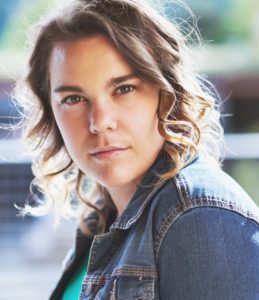 Emma Pattee became a millionaire at age 26. But she hates it when I describe her like that.
Emma Pattee became a millionaire at age 26. But she hates it when I describe her like that.
Here are other ways that Emma would prefer to be known: She’s thoughtful. She’s hilarious. She’s kind.
Emma is the child of hippies. She grew up in a tent in Oregon, at least for a portion of her childhood. She has a BFA in writing from Emerson College.
She bought her first house at age 21. At the time, Emma was juggling a demanding full-time job with her ambitions of becoming a writer. This balancing act felt too tough. She felt motivated to quit her job as quickly as possible, so that she could devote her time to writing.
She moved in with her boyfriend’s parents, saved 70 percent of her income, and contemplated what to do next.
She decided to “buy a small house in a not-so-nice neighborhood, and live for free by renting out enough rooms to cover my mortgage and make a little money on the side.”
But then she developed an addiction to real estate.
She kept buying houses and converting them into rental properties. She DIY’ed some projects and hired contractors for other projects. She improved the homes and raised the rents. She reinvested the cash flow into buying more houses. She borrowed against the equity and bought even more houses.
And that’s how Emma, by age 26, became a millionaire.
Her seven-figure net worth — and more importantly, the cash flow that accompanied it — allowed Emma to reach financial independence. She could stop trading her time for a paycheck.
Emma quit her job at age 26 and dove into the world of self-employment, starting a lucrative one-woman enterprise as a professional ghostwriter. She writes books and articles, for which her clients receive authorship credit. In exchange for this effort, Emma makes a substantial amount of money.
So who is Emma Pattee? She’s a financially independent millionaire real estate investor who started a lucrative self-employment business as a writer. (Sound familiar?)
Among the many words in that sentence, the most important word, to Emma, is the word “writer.” That’s why she started down this path. She wasn’t trying to become wealthy. She wanted to become a self-funded artist. She wanted, simply, to write.
Emma is a close friend. She was my guest of honor, my Plus One, when I delivered my keynote speech at the World Domination Summit last month. She’s my travel buddy and real estate investing companion; we visited Alabama last year to check out potential investments in Birmingham and Montgomery. She and I have talked about meeting occasionally for writing retreats.
In today’s episode, Emma and I sit down at her dining room table, plug in a microphone, and hit “record.” In the 30-minute conversation that follows, we talk about how and why we reached financial independence — and what comes next.
Enjoy.
Resources Mentioned:
- Take Radical Responsibility for Your Life, interview with Emma Pattee
- Four Unhealthy Attitudes Toward Money, interview with Dr. Brad Klontz
- EmmaPattee.com
- Article on Emma’s website: Starving Artists Should Buy Houses
- Emma on Twitter: @emmalincolnblog
- Charity: water donations
Thanks to our sponsors!
Do you want your money to make more money? Then check out Radius Bank’s free high-interest checking account. You earn 0.85% APY on balances of $2,500 and up – 12x the national average of 0.04% APY! To get started, head over to radiusbank.com/paula!
Save time by using Freshbooks, an easy-to-use, cloud-based accounting system that takes the stress and hassle out of bookkeeping and, especially, invoicing. You can create an invoice in a few seconds, and Freshbooks’ automated system will handle the rest. Visit Freshbooks.com/paula for a free 30-day trial. Please mention this show when they ask how you heard about them.
Many of our listeners are planning for retirement, but how many are creating wills, or revocable trusts? Both are equally important for our financial futures. Creating a will might seem daunting or scary, but thankfully, Tomorrow.me has you covered. They’ve made what is otherwise an emotionally draining task quick, easy, and accessible. You can create a free will in minutes by signing up on tomorrow.me/paula.
Want to earn up to a 7.5% annualized return while supporting the growth of solar energy in the United States? Wunder Capital finances smaller solar projects with an average project size of around $400,000, and the money they use to fund these projects comes from investors like you. The minimum investment is $1,000, so if you want to help small businesses go solar, visit wundercapital.com/paula to get started!